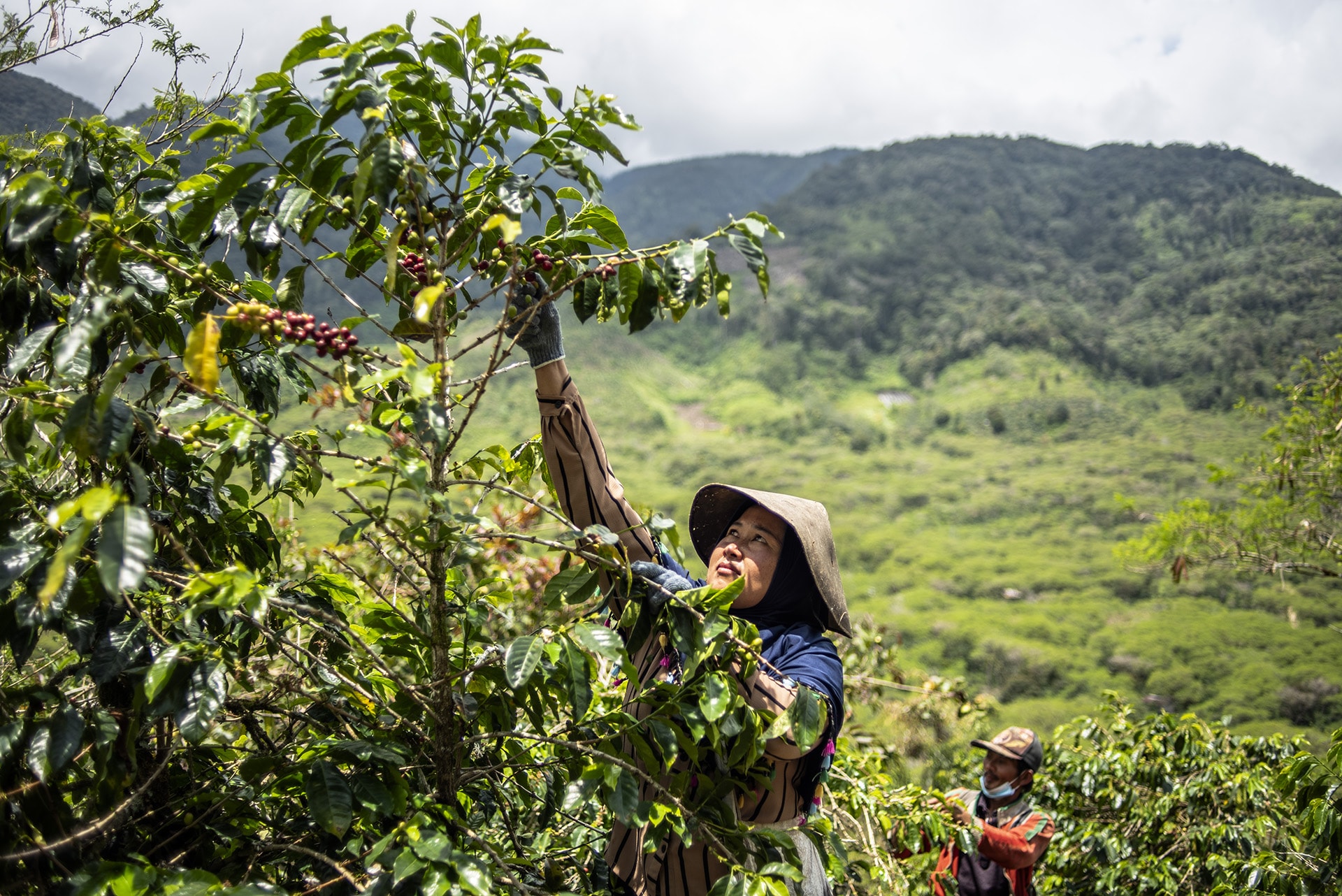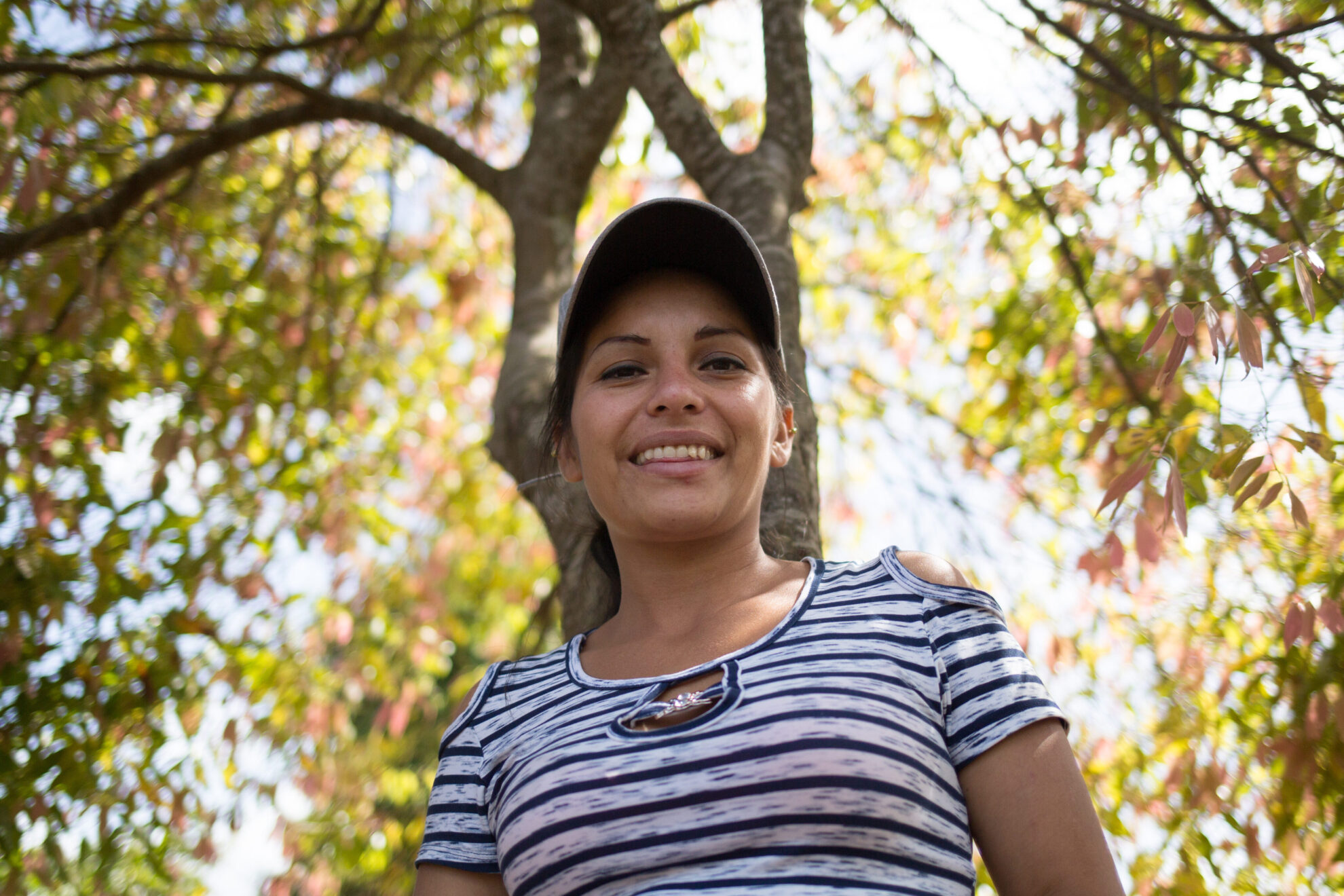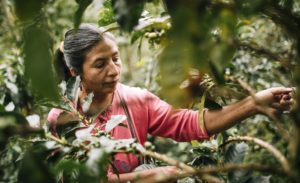
Vegan Cacao Smoothie Bowl Recipe
Read more

By choosing Fairtrade coffee you’re collaborating with more than 750,000 coffee farmers in an unstable market so they may earn a decent income, protect their local environment, and invest in their farms and communities.

For me, coffee is important because with it my family has grown, it has sustained the economy, and for us it’s been a grain that has helped us survive and move forward.
OLGA ALVARADO
COFFEE FARM OWNER, HONDURAS
Coffee is the most valuable and widely traded tropical agricultural product with around 125 million people dependent on it for their livelihoods.
However, the price volatility of coffee causes unreliable income for those who produce it. Extreme weather events in a producing country, fluctuations in currency valuations, or the basic dynamics of supply and demand are all part of what makes the price of coffee change every three minutes.
While the global coffee industry now generates more than $200 billion per year, the average farmer’s income has not changed in the past 20 years – or has actually declined when taking into account higher farming costs.
The financial insecurity in coffee farming is driving away both present and future generations of coffee farmers – a dynamic we need to address if coffee is to survive as a viable business.

The UN Food & Agriculture Organization estimates that 80% of the world’s coffee is grown by smallholder farmers.

By 2050, the amount of land that can sustain coffee will have fallen by 50%.

The average Canadian drinks over 2.7 cups of coffee per day
Fairtrade aims to give farmers stability in this unpredictable environment by offering a Fairtrade Minimum Price, which protects them from sudden price drops. Organically grown coffee receives an additional price incentive.
Coffee farmers also receive a Fairtrade Premium – an extra sum of money paid on top of the selling price that farmers and workers invest in business or community projects of their choice. A set portion of the Fairtrade Premium goes toward improving production or quality.
By supporting smallholder farmers to organize themselves into small producer organizations – such as cooperatives and associations – farmers can negotiate better terms of trade and reach wider markets.
Global coffee prices are volatile, and haven’t increased overall in decades – in fact, when factoring in inflation, they have steadily decreased since the 1970s. Since the price crash of 2019, coffee farmers have faced rising costs that wipe out the gains of higher market prices. In addition to the benefits of the Fairtrade Minimum Price and Premium, we have developed a holistic Fairtrade Living Income Strategy to close the income gap and have established Living Income Reference Prices for coffee in a number of coffee producing countries.

Plunge into the story of Olga Alvarado, who left her home in Honduras at only 18 years old to provide a better future for her son. Leaving a situation of poverty to earn money in the United States enabled her to buy a coffee plot in Honduras.
We’re proud to work with Canadian companies who choose to source Fairtrade. Now you can support your local brands dedicated to making trade fair by shopping Fairtrade local.
Fairtrade can make a real difference for farmers and workers, their families, and their wider communities.

Cenfrocafe was formed in 1999, by uniting 12 small coffee-growing associations in the village of Palla Peña. Today, it is a large network of 84 organizations, representing more than 3,000 farming families.
Read more about the cooperative, the impact of Fairtrade Premium investments, and farmer stories
Learn more with these recent stories about Fairtrade coffee: